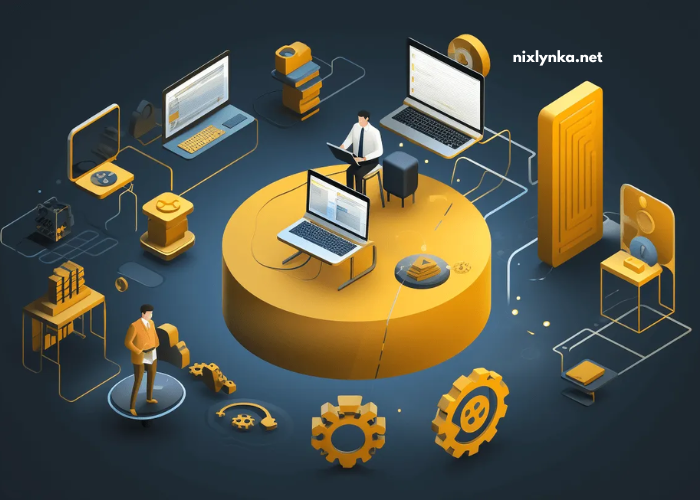As businesses continue to navigate an ever-evolving global landscape, ensuring sustainable growth has become a key priority for leaders across industries. In 2025, companies will face new challenges and opportunities that demand more than just traditional methods of growth. In this article, we will explore effective business strategies that can help organizations achieve sustainable growth, maintain competitive advantages, and build a future-proof foundation.
The Importance of Sustainable Growth
Sustainable growth refers to the ability of a business to expand and prosper over time without compromising its long-term viability or the well-being of its stakeholders. Unlike short-term growth, which may focus on immediate financial results or market share, sustainable growth focuses on a balanced approach. This includes financial success, social responsibility, environmental stewardship, and maintaining healthy relationships with employees, customers, and partners.
In 2025, businesses that are able to successfully integrate sustainable growth strategies will not only outperform their competitors but will also build lasting trust with consumers and investors. Sustainable growth is no longer a mere buzzword but a necessity for businesses aiming to thrive in the modern, eco-conscious, and technologically advanced marketplace.
Key Business Strategies for Sustainable Growth in 2025
1. Embrace Digital Transformation
In the age of technology, digital transformation is crucial for businesses looking to scale sustainably. The rapid advancement of artificial intelligence (AI), automation, and cloud computing has revolutionized how companies operate. In 2025, businesses will need to embrace these technologies to streamline operations, improve efficiency, and enhance customer experiences.
Why Digital Transformation Matters for Sustainable Growth:
- Enhanced Efficiency: Automation and AI can reduce costs by optimizing processes, allowing businesses to allocate resources more effectively.
- Data-Driven Decision Making: Cloud-based tools and advanced analytics can provide real-time insights, helping businesses make informed decisions that drive growth.
- Customer-Centric Experience: Digital tools enable businesses to engage with customers more effectively, personalize offerings, and increase customer loyalty.
- Agility and Scalability: Digital systems can help businesses remain agile, adjusting quickly to market changes and scaling operations without excessive resource consumption.
2. Invest in Innovation and R&D
Innovation is at the heart of sustainable business growth. As consumer needs evolve, businesses must continuously adapt their products, services, and processes. In 2025, companies that invest in research and development (R&D) will be better positioned to lead their industries, stay ahead of competitors, and cater to the ever-changing market.
How Innovation Fuels Sustainable Growth:
- Product and Service Diversification: Innovative businesses can create new products or services that tap into emerging trends and consumer preferences, opening up new revenue streams.
- Improved Efficiency: R&D can lead to process innovations that reduce costs, improve quality, and create more sustainable production methods.
- Long-Term Value Creation: Continuous innovation ensures that a business remains relevant, meeting the needs of future generations and securing long-term profitability.
3. Build a Strong Brand Identity with Purpose
In today’s socially conscious environment, customers are looking for more than just products—they want brands that align with their values. Businesses in 2025 must build a strong, authentic brand identity that emphasizes purpose and values. Companies that focus on sustainability, ethical practices, and community impact can differentiate themselves in the market.
The Role of Purpose-Driven Branding in Sustainable Growth:
- Customer Loyalty: Consumers are more likely to stay loyal to brands that demonstrate a commitment to social and environmental causes.
- Attracting Top Talent: Purpose-driven companies tend to attract employees who are passionate about making a positive impact, which contributes to a more motivated and productive workforce.
- Positive Reputation: A strong brand that stands for something meaningful can enhance a company’s reputation and appeal, even in the face of competition.
4. Foster Strategic Partnerships and Collaborations
Collaboration is an essential component of sustainable growth. Businesses that are able to form strategic partnerships and alliances with other organizations can expand their reach, access new markets, and share resources. By working together, companies can leverage each other’s strengths, reduce risks, and accelerate growth.
Why Strategic Partnerships Are Key to Growth in 2025:
- Access to New Markets: Partnering with other businesses allows companies to enter new geographic regions or market segments, diversifying their customer base.
- Resource Sharing: Strategic collaborations can help businesses access valuable resources such as technology, capital, and expertise that they may not possess in-house.
- Risk Mitigation: Pooling resources and sharing expertise with other organizations can reduce the risks associated with new ventures or market challenges.
5. Prioritize Sustainability and Environmental Responsibility
As climate change and environmental degradation continue to rise as global concerns, businesses are under increasing pressure to adopt sustainable practices. In 2025, companies that prioritize sustainability will not only contribute positively to the planet but also improve their financial performance by appealing to eco-conscious consumers.
How Sustainability Contributes to Long-Term Growth:
- Cost Savings: Implementing energy-efficient processes and reducing waste can lower operational costs over time.
- Attracting Investment: Investors are increasingly focusing on sustainable businesses, and those with strong environmental credentials are more likely to attract funding.
- Brand Loyalty: Consumers are more likely to support brands that are committed to sustainability and reducing their environmental impact.
- Regulatory Compliance: Governments worldwide are imposing stricter environmental regulations. Adopting sustainable practices helps businesses avoid penalties and stay compliant.
6. Focus on Employee Well-Being and Development
The success of a business hinges on the well-being and engagement of its employees. In 2025, businesses that invest in their employees’ personal and professional development will foster a more committed, productive, and loyal workforce. A focus on work-life balance, mental health, and ongoing education can lead to higher job satisfaction and retention rates.
Why Employee Engagement Is Critical for Sustainable Growth:
- Increased Productivity: Engaged employees are more motivated and productive, which translates to improved business performance.
- Innovation and Creativity: A culture that fosters continuous learning and development encourages employees to contribute innovative ideas, driving the business forward.
- Talent Retention: When employees feel supported and valued, they are more likely to stay with the company, reducing turnover and the costs associated with recruitment and training.
- Positive Company Culture: A business that prioritizes employee well-being creates a positive company culture, which is essential for long-term success.
7. Leverage Data Analytics for Informed Decision Making
Data is a critical asset for modern businesses. In 2025, companies that harness the power of data analytics will be able to make more informed decisions, optimize operations, and predict trends. Advanced analytics tools, powered by AI and machine learning, enable businesses to unlock insights from vast amounts of data and make real-time decisions that drive growth.
How Data Analytics Drives Sustainable Growth:
- Predictive Insights: Data analytics helps businesses forecast trends, customer preferences, and market shifts, enabling them to adjust strategies accordingly.
- Optimizing Operations: Data-driven decision-making can identify inefficiencies in operations, reducing costs and improving profitability.
- Improving Customer Experience: By analyzing customer behavior, businesses can tailor their offerings to meet customer needs, resulting in improved satisfaction and loyalty.
- Risk Management: Data analytics can help identify potential risks and mitigate them before they negatively impact the business.
8. Enhance Customer Experience and Personalization
In 2025, businesses that focus on delivering personalized and seamless customer experiences will build stronger relationships with their audience. By leveraging technology, businesses can gather customer data and insights to offer tailored solutions that meet individual needs and preferences.
Why Customer Experience Is Critical for Long-Term Growth:
- Customer Retention: A personalized experience increases customer satisfaction, loyalty, and repeat business.
- Positive Word of Mouth: Satisfied customers are more likely to recommend the brand to others, which can lead to organic growth.
- Competitive Advantage: Businesses that offer exceptional customer experiences stand out in the marketplace, giving them a competitive edge over less customer-focused competitors.
9. Create a Flexible and Agile Business Model
The business environment in 2025 will continue to be unpredictable, making it essential for companies to remain flexible and adaptable. A business model that can pivot in response to market changes, technological advancements, or unexpected disruptions will be better equipped for sustainable growth.
Why Agility Is Crucial for Business Success:
- Faster Response to Market Changes: An agile business model allows companies to quickly adjust to changes in customer preferences, competition, or external factors.
- Innovation Opportunities: Flexible business structures foster innovation by enabling experimentation with new ideas and approaches.
- Risk Mitigation: By staying agile, businesses can minimize the impact of potential risks, whether from market downturns, supply chain disruptions, or technological shifts.
Conclusion
Sustainable growth in 2025 will require businesses to adopt a holistic approach that integrates technological advancements, innovation, employee well-being, environmental responsibility, and customer-centric strategies. Companies that can balance these factors while remaining adaptable and agile will be well-positioned for success in the coming years. By leveraging digital transformation, focusing on sustainability, and fostering strong relationships with stakeholders, businesses can not only grow but thrive in an increasingly competitive and dynamic marketplace.
As we move into 2025, businesses must recognize that sustainable growth is not a one-time achievement but an ongoing commitment. By implementing these effective strategies and staying ahead of the curve, organizations can build a robust foundation for long-term success and positive impact.





